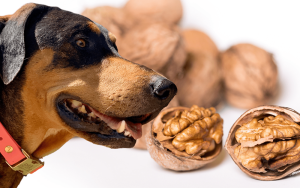Can Cats Eat Chicken Bones?Understanding the Risks and Safety Tips

When it comes to feeding our furry companions, it’s important to know which foods are safe and beneficial and which ones could pose serious risks to their health. One common question that arises among cat owners is whether cats can eat chicken bones.
While the idea of sharing a tasty chicken meal with your cat may seem appealing, it’s crucial to understand the potential dangers involved. In this article, we will explore the risks associated with feeding chicken bones to cats, why they can be hazardous,
and what you should do instead to ensure your cat’s safety and health.
Table of Contents:
- Why Are Chicken Bones Dangerous for Cats?
- What Happens if a Cat Eats Chicken Bones?
- Symptoms of Bone-Related Injuries in Cats
- What Should You Do if Your Cat Eats Chicken Bones?
- Are There Any Safe Alternatives to Chicken Bones for Cats?
- Conclusion
1. Why Are Chicken Bones Dangerous for Cats?
While cats are obligate carnivores and have a natural instinct to chew on meat and bones, chicken bones—whether raw or cooked—pose significant risks. The problem is that chicken bones, especially when cooked, can splinter easily, creating sharp edges
that can cut through your cat’s digestive system, mouth, and throat.
Cooked Bones vs. Raw Bones
The primary concern with chicken bones is their cooking process. Cooked chicken bones are much more brittle and prone to splintering than their raw counterparts. When bones break into small shards, they can become lodged in your cat’s throat, esophagus,
or intestines. These sharp fragments can also cause perforations in the digestive tract, which could lead to life-threatening infections or require surgical intervention.
Raw bones, on the other hand, are less likely to splinter, but they still carry risks. If a cat swallows large pieces of raw bone, they may cause blockages in the intestines, which could lead to discomfort, pain, or severe gastrointestinal issues.
2. What Happens if a Cat Eats Chicken Bones?
When a cat consumes chicken bones, there are several potential dangers that can occur. The specific risk depends on whether the bones are cooked or raw, the size of the bones, and whether the cat chews the bones or swallows them whole.
Bone Fragments in the Throat or Esophagus
If the chicken bones break into sharp pieces, they can get stuck in the cat’s throat or esophagus. This is a common issue when cats try to swallow a bone without chewing it properly. The bone may scratch the lining of the throat or cause choking, leading
to difficulty breathing and swallowing.
Perforation of the Digestive Tract
If a cat does manage to swallow bone fragments, there is a risk that the sharp edges can puncture the walls of the stomach or intestines. This can lead to peritonitis, a severe and often fatal infection in the abdominal cavity. Symptoms of peritonitis
include vomiting, lethargy, abdominal pain, and fever, which require immediate veterinary attention.
Intestinal Blockages
Large bone fragments, whether raw or cooked, can get stuck in the intestines, causing a blockage. This prevents food and waste from passing through the digestive system properly. Symptoms of an intestinal blockage include vomiting, abdominal bloating,
loss of appetite, and lethargy. Blockages may require surgical removal, so it’s essential to monitor your cat closely after it eats something like chicken bones.
Teeth and Jaw Injuries
Even if a cat manages to chew on chicken bones, they could damage their teeth or jaw. Cats have sharp, pointy teeth meant for tearing flesh, not crushing bones. Biting down on a hard bone can result in cracked or broken teeth, which can lead to painful
dental issues and the need for dental treatment.
3. Symptoms of Bone-Related Injuries in Cats
If your cat has eaten chicken bones, it’s crucial to watch for signs of discomfort or injury. Some of the symptoms to look out for include:
- Difficulty Swallowing: A cat that is struggling to swallow or is drooling excessively may have something lodged in its throat or esophagus.
- Coughing or Gagging: Persistent coughing or gagging can indicate that the cat is trying to dislodge a bone from its airways.
- Vomiting or Diarrhea: If the bones have caused an obstruction in the digestive system, vomiting and diarrhea can occur as the body tries to expel the foreign object.
- Lethargy: A cat that has ingested chicken bones and is feeling unwell may exhibit signs of tiredness, lack of energy, or reluctance to move.
- Abdominal Pain or Swelling: If the bone causes a perforation or blockage, your cat may exhibit signs of abdominal discomfort, such as tenderness when touched or a bloated belly.
- Loss of Appetite: A cat with digestive issues or pain may lose its appetite and refuse to eat or drink.
If you notice any of these symptoms after your cat has consumed chicken bones, it’s important to contact your veterinarian immediately. The quicker you act, the better the chances of resolving the issue without significant harm.
4. What Should You Do if Your Cat Eats Chicken Bones?
If your cat eats chicken bones, the first step is to stay calm. Cats are known to chew on bones, but the situation can quickly escalate if there’s a blockage or injury. Here’s what you should do if your cat has eaten chicken bones:
Observe Your Cat
Monitor your cat closely for any symptoms of discomfort or distress, such as choking, coughing, gagging, vomiting, or changes in behavior. Cats are good at hiding pain, so subtle signs should not be ignored.
Contact Your Veterinarian
If your cat shows any signs of distress or you’re unsure whether the bones have caused damage, it’s important to reach out to your veterinarian. Depending on the situation, your vet may recommend bringing your cat in for an examination and possibly an
X-ray to check for any blockages or bone fragments lodged in the digestive tract.
Do Not Induce Vomiting
In general, it’s not advisable to try and induce vomiting at home unless instructed by a veterinarian. In some cases, causing the bones to come back up could lead to more harm than good, especially if they get stuck in the cat’s airways or cause further
internal damage.
Provide Comfort and Water
If your cat seems fine and is not showing any signs of distress, make sure they have access to fresh water and a comfortable place to rest. Sometimes, if the bones are small and smooth enough, the cat may pass them without any issues.
5. Are There Any Safe Alternatives to Chicken Bones for Cats?
If you’re looking to give your cat something to chew on or an occasional treat, there are much safer options than chicken bones. Some healthy alternatives for cats include:
Raw Cat Food (Bones Included)
If you want to feed your cat bones, the best option is raw, meaty bones specifically designed for cats. Raw bones, especially those that have a significant amount of meat attached, are much safer than cooked bones. However, they should still be supervised
to prevent swallowing large pieces that may cause a blockage.
Cat Chew Toys
There are a variety of chew toys designed for cats that help satisfy their natural urge to gnaw. These toys are typically made of safe, durable materials and can provide a fun, safe outlet for your cat’s chewing needs.
Dental Treats
Dental treats are a great way to help maintain your cat’s dental health. These treats are designed to be chewed and can reduce plaque and tartar buildup, preventing dental issues like gingivitis and tooth decay.
Fish and Meat Snacks
You can also give your cat small, bite-sized pieces of cooked meat, such as chicken, turkey, or fish. These should be boneless and free of seasoning or other additives. These treats can be a healthy, protein-rich snack for your cat.
6. Conclusion
While it might seem natural to share a piece of chicken with your cat, chicken bones, especially when cooked, are extremely dangerous. They can splinter easily and cause choking, gastrointestinal injuries, blockages, or even death. Always be cautious
when offering your cat food, and avoid giving them chicken bones or any other type of bone that could pose a risk.
If your cat accidentally eats chicken bones, monitor them closely for any symptoms of injury or distress and seek veterinary help immediately. By understanding the risks and providing safer alternatives, you can keep your cat healthy and happy without
compromising their safety.
For your cat’s well-being, it’s always best to stick with food that is specially designed for felines, ensuring that you meet their nutritional needs while avoiding potential hazards.






